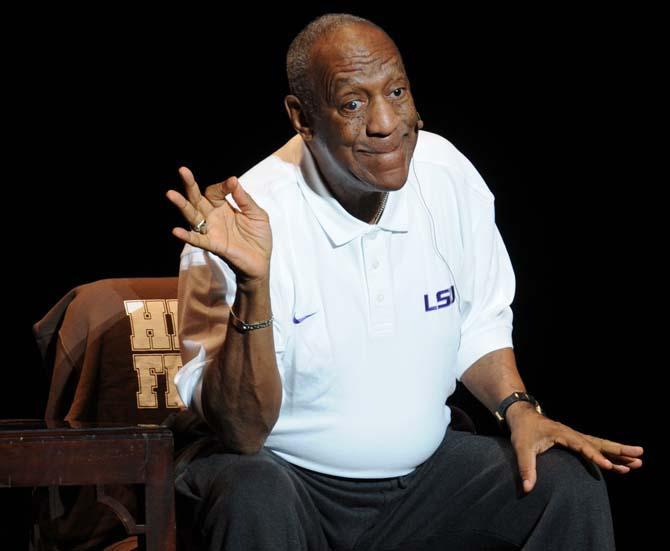The accusations against Bill Cosby are mounting, and they look damning.
After a clip of standup comic Hannibal Buress repeatedly calling Cosby a rapist went viral last month and Cosby refused to comment on the allegations’ resurfacing in an NPR interview last week, more women have come forward accusing Cosby, and the public largely has turned against him.
Buress was basing his statement on a 2005 lawsuit by 14 women accusing Cosby of rape that was eventually settled out of court.
Presumably, Buress made his statements based partly on shock value — the performance that went viral took place in Cosby’s home city of Philadelphia — but partly because he felt Cosby got out of the original lawsuit too easily.
That’s understandable. It’s hard to be satisfied with justice served out of court when the terms of the settlement are never released. A settlement, of course, is not an admission of guilt, but it is an easy way for the rich to get a pesky lawsuit from complainants with fewer resources out of their hair.
“Here,” it says. “Take this suitcase full of cash and sign this nondisclosure agreement and I promise my well-paid team of lawyers and I won’t drag you through a lengthy and expensive court battle you’ll probably lose on a technicality.”
Now Buress has succeeded in bringing the conversation about Cosby’s allegations to the mainstream, and more women have come forward to accuse him.
Since then, Netflix decided against airing Cosby’s stand-up special it had been planning to release Nov. 28, an appearance on “The Late Show With David Letterman” was cancelled, NBC stopped development on a new Cosby-centered sitcom that had been in the works and television network TV Land pulled reruns of “The Cosby Show.”
So why did these allegations that got swept under the rug 10 years ago stick this time? Surely Cosby’s lovable dad-ness hasn’t worn out now?
We can thank the victims and their bravery and candor in speaking out. In part, it must be the sickeningly systematic techniques many of Cosby’s accusers say he used to trick them into being alone with him, incapacitating them and raping them.
Time after time, the women tell stories of how Cosby got them alone under false pretenses, whether it was to work on a script or comedy bit and offered them a drink that turned out to be drugged.
“And then next thing I know, I was being undressed on his couch. I was so out of it,” said Joan Tarshis, who on Monday in an interview with Philadelphia Magazine accused Cosby of raping her in 1969. “He definitely used force. There was nothing I could do except wait for it to be over. I was in shock.”
Tarshis’ account is typical of the allegations against Cosby. That he allegedly used his power over these women in such a way, and that each account follows the same basic blueprint — Cosby seems to have gotten horrifyingly good at this — is certainly fueling some of the public outcry.
As much as Cosby should face legal repercussions for his actions, if true, his victims deserve to see justice. After all, what do they stand to gain from falsely accusing him in public without bringing charges? At most, if he did sexually assault them, they can hope to see their attacker removed from the public eye, shamed and forgotten from his role as America’s crotchety-yet-lovable dad.
Because that’s the most difficult part of this, isn’t it? Cosby, and his eponymous show, are absolutely beloved. For many people of my generation, Cosby is the definitive TV dad, dispensing gruff wisdom from behind his kitschy sweaters, and it’s painful to accept that the actor who embodied Cliff Huxtable may have done many terrible things to many women.
That’s also why the public has been so quick to turn against Cosby — it’s painful to divide the icon of Cosby’s persona from the human he has apparently always been.
Gordon Brillon is a 21-year-old mass communication senior from Lincoln, Rhode Island.
Opinion: Weakening of rape taboo allows Cosby allegations to resurface
November 20, 2014
Bill Cosby imatates his wife fixing her makeup on the way to the hospital to give birth during his two hour comedy performance at the Baton Rouge River Center on Sunday, Oct. 4.





